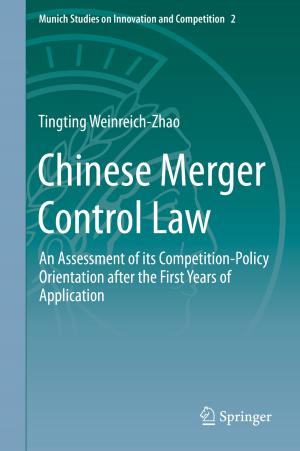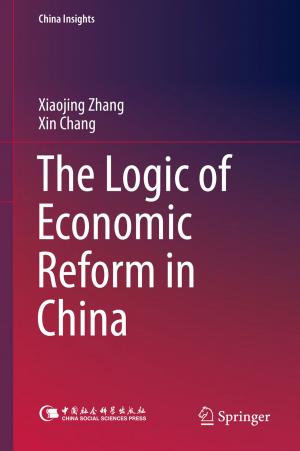International Trade and Unemployment
On the Redistribution of Trade Gains When Firms Matter
Business & Finance, Career Planning & Job Hunting, Labor, Economics, International Economics| Author: | Marco de Pinto | ISBN: | 9783642332364 |
| Publisher: | Springer Berlin Heidelberg | Publication: | December 14, 2012 |
| Imprint: | Physica | Language: | English |
| Author: | Marco de Pinto |
| ISBN: | 9783642332364 |
| Publisher: | Springer Berlin Heidelberg |
| Publication: | December 14, 2012 |
| Imprint: | Physica |
| Language: | English |
Economic theory and empirical research confirm that the rising international integration caused an increase in aggregate income at least for the industrialized countries, although trade liberalization is no Pareto improvement. In the empirical literature, there is a consensus that the international integration implies a destruction of low-skilled job vacancies and an increase in income, while the conclusions are mixed concerning the implication for the overall unemployment rate. This book seeks to find theoretical explanations to these empirical regularities. The book poses three questions: What are the implications of trade liberalization for the labor market in the presence of trade unions if we account for both firm and worker heterogeneity? What are the implications of a redistribution policy if the government chooses unemployment benefits to partially compensate the losers of trade liberalization?, and what is the optimal redistribution scheme for trade gains if the government explicitly takes into account the consequences for the income distribution? This book presents a rigorous theoretical analysis to answer the questions posed. Beside the well-known firm-selection effect on goods markets caused by trade liberalization, a selection process on the labor market -the worker-selection effect - is presented. The book also argues that if welfare is measured in the traditional manner, i.e. income per capita, compensating the loser of trade liberalization by paying unemployment benefits decreases welfare, but the intensity of the reduction differs with respect to the chosen funding of the unemployment benefits. Another significant contribution of this book is that if the objective function of the government, i.e. the modified welfare function, includes both aggregate income and income inequality, the redistribution of trade gains can lead to an increase in welfare.
Economic theory and empirical research confirm that the rising international integration caused an increase in aggregate income at least for the industrialized countries, although trade liberalization is no Pareto improvement. In the empirical literature, there is a consensus that the international integration implies a destruction of low-skilled job vacancies and an increase in income, while the conclusions are mixed concerning the implication for the overall unemployment rate. This book seeks to find theoretical explanations to these empirical regularities. The book poses three questions: What are the implications of trade liberalization for the labor market in the presence of trade unions if we account for both firm and worker heterogeneity? What are the implications of a redistribution policy if the government chooses unemployment benefits to partially compensate the losers of trade liberalization?, and what is the optimal redistribution scheme for trade gains if the government explicitly takes into account the consequences for the income distribution? This book presents a rigorous theoretical analysis to answer the questions posed. Beside the well-known firm-selection effect on goods markets caused by trade liberalization, a selection process on the labor market -the worker-selection effect - is presented. The book also argues that if welfare is measured in the traditional manner, i.e. income per capita, compensating the loser of trade liberalization by paying unemployment benefits decreases welfare, but the intensity of the reduction differs with respect to the chosen funding of the unemployment benefits. Another significant contribution of this book is that if the objective function of the government, i.e. the modified welfare function, includes both aggregate income and income inequality, the redistribution of trade gains can lead to an increase in welfare.















